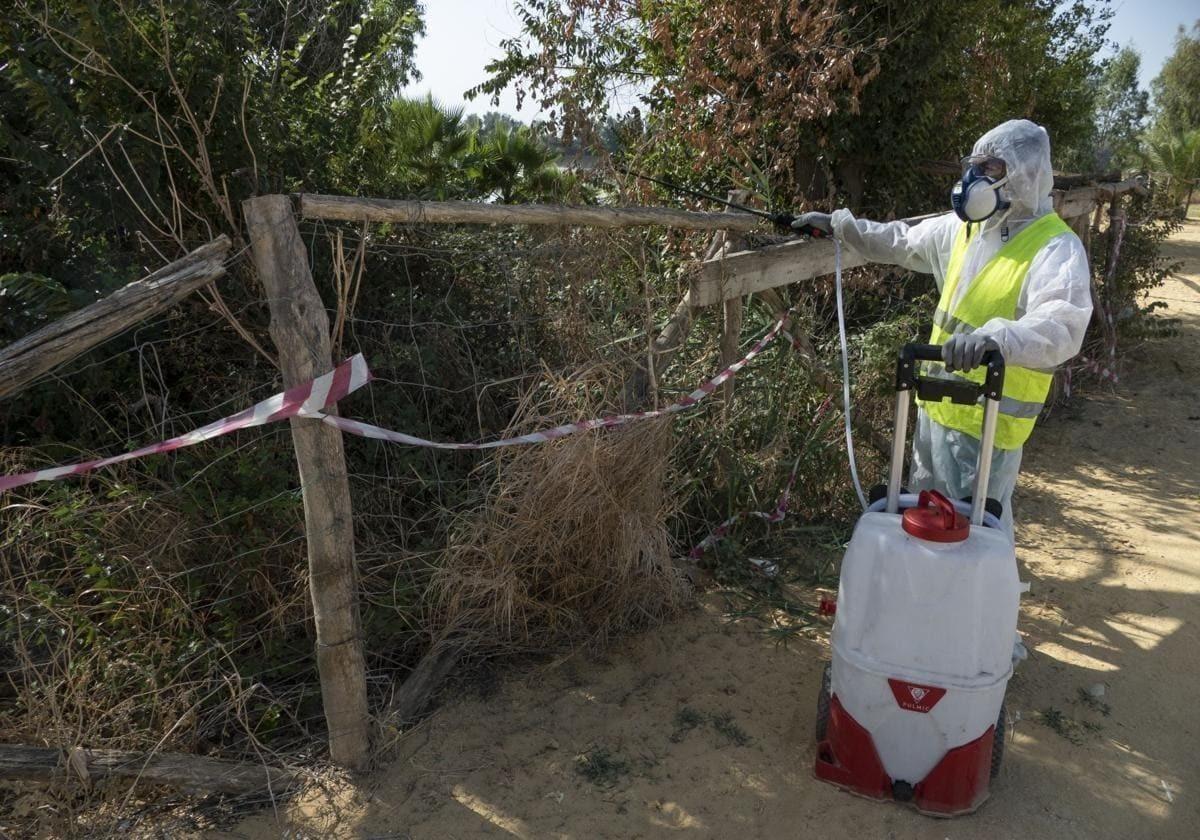Efforts to control West Nile fever ramp up after virus detected in Malaga
The virus is transmitted to people via mosquito bites and has claimed five lives so far this summer in Andalucía
SUR
Tuesday, 3 September 2024, 16:02
Malaga city council is ramping up its efforts to control the mosquito-borne West Nile virus in the city.
It comes after town hall received an alert from Junta health authorities that the virus, transmitted to people via mosquito bites, was detected in mosquito samples taken in the area around the Guadalhorce River, in the Campanillas district.
The alert, which ups the risk level in Malaga, only refers to the presence of the virus in mosquitoes, but not in humans. This means the council will now increase its inspection of stagnant water, the application of biological larvicides and install more traps in areas where the presence of larvae is confirmed.
Although Malaga is not considered a risk area, according to reports from the Junta's ministry of health, the city council has had a municipal plan for the surveillance and integral control of mosquitoes transmitting West Nile virus in place for the past four years.
Through this programme, a diagnosis of the situation of the presence of mosquitoes is carried out by sampling adult mosquitoes in traps throughout the municipality, as well as the search for water accumulations that may be a host to larvae. In the samples taken so far by the city council, the presence of West Nile virus has not been detected. Population control of these mosquitoes is also carried out by applying larvicides in stagnant water and the use of adulticidal insecticides is also being considered if necessary.
Recommendations
To control breeding, it is important for residents not to keep containers (pots, toys or buckets) that can accumulate water in the home and, if necessary, to empty them at least once a week. In the case of ponds, swimming pools, ponds or fountains, breeding can be controlled by chlorinating the water or introducing fish that feed on eggs and larvae. In the case of livestock farms, it is advisable to avoid water from puddles in vehicle tracks or roads or water leaks.
Measures to avoid bites
1. Use mosquito nets on windows and doors, monitor pump rooms with drinking water reservoirs or for receiving sewage, basements liable to flooding, etc.
2. Wear clothing that covers the skin: long sleeves, long trousers and socks, especially in the evening.
3. Leave the light off if the window is open, as mosquitoes come to the light.
4. Outdoors, try to stay away from areas where there is untreated stagnant water (non-chlorinated water), such as tyre sheds, fountains, pools, ponds, washing places, tree holes.
5. Use mosquito repellents if you are in an area where mosquitoes are abundant and at times when they bite most frequently (in the evening or at night). Do not use products that are not registered for domestic use, and read the contents of the labels carefully before using the product.
6. If sprays (insecticides) are used, rooms must be well ventilated. They must also be registered for domestic use. Electric mosquito repellents should always be used with the windows open (at least when staying overnight in the room).
